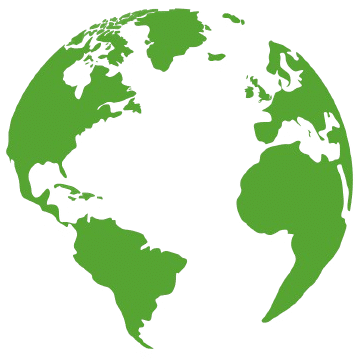Many EMDEs' outlook is currently worsening due to several of their existing unions losing relevance. This is the case, for instance, with the West African political and economic union ECOWASMember countries risk having no alternatives left but BRICS. This affects global geopolitics and geo-economics.
Unions are necessary to achieve global political leverage
- Over the past decades, African countries have become increasingly aware that political power against superpowers requires economic power. This desire has been reinforced by the different approaches major powers have taken towards the situations in Ukraine and Gaza. In Africa, these two conflicts are perceived as fundamentally similar but deeply differently handled by the West.
- Many developing countries are currently in debt spirals. They thus need to negotiate emergency loans and haircuts with major powers like China, the IMF, the EU, the USA, or the Paris Club. This is difficult for small nations.
- Therefore, interest is growing in joining unions and collaborations such as CPTPP, RCEP, BRICS+, and Mercosur.
- ECOWAS (Economic Community of West African States) is a regional economic union of 15 countries in West Africa (see appendix). It was founded in 1975 with the goal of creating a single market for goods, services, and labor mobility. Therefore, a parliament, courts, and a commission have been established. Additionally, eight of the countries participate in the common currency union, the CFA franc. Together, ECOWAS is a globally dominant supplier of cocoa, cotton, rubber, timber, diamonds, and gold.
But unions like ECOWAS have proven fragile
- Nevertheless, neither the African Union nor ECOWAS was able to prevent or mediate the military coups in 2023 in the Sahel region. This created internal doubts about the organization's strength.
- For instance, ECOWAS imposed a series of sanctions on Niger to reinstate Mohamed Bazoum as president. These sanctions have now led to an acute shortage of food and medicine in the country, counteracting ECOWAS' goal of political stability. Furthermore, Bazoum is nowhere near being reinstated.
- ECOWAS also failed to persuade Macky Sall from suspending Senegal's democracy. Not even Nigeria's powerful president, Bola Tinubu, could convince Macky Sall. Sall's eventual promise to step down on time was instead due to popular unrest in what was otherwise known as Africa's "most stable democracy."
- In early February, Niger, Mali, and Burkina Faso announced their intention to leave ECOWAS (see appendix) to create their own "Alliance of Sahel States" (AES). These three countries constituted nearly half of ECOWAS' geographical area.
- This prompted ECOWAS to lift all economic sanctions against Niger.
- However, Niger's AES plans remain for now, likely because Russia insists.
- At the end of February, ECOWAS lifted the last sanctions against Guinea.
ECOWAS hoped that their common currency would provide monetary power
- Niger, Mali, and Burkina Faso were major participants in the cooperation's central financial project: the common Euro-pegged currency, the CFA franc (see appendix).
- The plan was for the CFA franc to eventually be rolled out among all ECOWAS countries. Over time, it was also supposed to merge with the Central African CFA franc, under the name eco. This would have created a common currency for 21 countries in Africa, thereby providing both financial and resource (geopolitical) power.
- The hope was/is that the CFA franc could enable the same monetary tools as the ECB. Among the hopes was to monetize the CFA franc (QE as a basis for economic growth stimuli). The credit basis was to be the raw material deposits, similar to what most Sovereign Wealth Funds are based on.
- But this would have required ECOWAS to demonstrate political strength, for instance by preventing the formation of AES or Macky Sall's undemocratic actions. The foundation for close cooperation, mutual trust, has suffered a blow.
Disagreement here benefits the alternative, BRICS
Although ECOWAS is still (fairly) well-functioning, several of its member countries are considering withdrawal. This would benefit the alternative, BRICS+, which plans to have a common currency and has established the New Development Bank.
However, most ECOWAS countries still believe that membership in BRICS+ means subjecting themselves to BOTH China AND Russia AND India. This would take them even further away from the dream of sovereignty over their own economy and growth.
The "battle for Africa" is both an external and an internal struggle for African countries for alliances. Alliances are necessary to remain independent.

